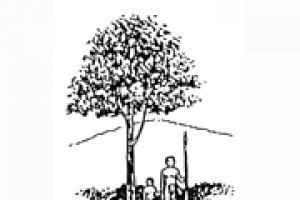For years, the Dayak indigenous peoples of Sarawak have been defending their forests and livelihoods from the depredatory activities of logging, oil palm and eucalyptus plantations promoted by the Malaysian and the Sarawak state governments. In an unequal struggle, local communities -supported by Malaysian and international social and environmental NGOs- have been resisting the destruction of their forests and the installation of plantations.
Large-Scale Tree Plantations
Industrial tree plantations are large-scale, intensively managed, even-aged monocultures, involving vast areas of fertile land under the control of plantation companies. Management of plantations involves the use of huge amounts of water as well as agrochemicals—which harm humans, and plants and animals in the plantations and surrounding areas.
Bulletin articles
18 May 2000
Thailand’s villagers are fighting to prevent a 120,000 hectares (ha) eucalyptus plantation project that would lead to widespread forest clearance and threatens the farming livelihoods of hundreds of rural communities in eight eastern and northeastern provinces.
Bulletin articles
18 May 2000
Together with the alarming destruction of primary forests in tropical South and Central America, in Costa Rica something positive is happening: an increase in the area of secondary forests, which are those that are starting to regenerate after having suffered a degradation process. These forests have a great potential for the production wood and non-wood products, as well as in the provision of environmental services.
Bulletin articles
18 May 2000
In spite of the experiences accumulated during all these years with regard to the damages caused by large-scale tree plantations, the draft bill of the so-called Special Law for Sustainable Forestry Development in Ecuador is inspired in the Chilean legislation of the 1970s, which has been the model for the legal framework that regulates forestry activities in other South American countries. Such model is based precisely on the promotion of tree plantations, while forests occupy a secondary place in importance.
Bulletin articles
18 May 2000
The big landowner Bishop Estate, which owns the sugar lands of Hamakua, has 12,000 acres planted and 4,000 acres more to expand its eucalyptus plantations. The company is also planting 5,000 acres down south in Ka'u. Also Parker Ranch is beginning to lease another 10,000 acres to eucalyptus. Additionally, concern is increasing among ranchers, since ponds are diminishing their yield because of the presence of eucalyptus monocultures, which can be intensifying the effects of drought. Ranchers are extremely upset that eucalyptus is taking over much of the land.
Bulletin articles
18 May 2000
Meeting in Moruya over the weekend the National Forest Summit, Australia's major body representing forest campaign groups, has roundly condemned the federal Government's push for an Australian Forestry Standard in the face of growing calls for "certified" wood.
Internationally, consumers are demanding wood products that can be certified as having been sourced from forests that have been managed sustainably. The most well known of these management standards is that developed by the Forest Stewardship Council, which has now certified over 18 million hectares worldwide.
Bulletin articles
18 May 2000
On a group of Melanesian islands in the South Pacific, a tragic plunder is taking place. Logging by mainly Malaysian companies has escalated in the last five years to more than 3 times the estimated sustainable yield. In other words the forests are being logged at more than three times faster than they are growing. In less than ten years all the productive lowland forests will be logged. The forests are rich tropical rainforests with thousands of unique plants and animals. As well, a diversity of cultures and people who customarily own and rely on the forests are under threat.
Bulletin articles
18 April 2000
Gabon's primary rainforests are disappearing at a high speed. Logging of precious tropical wood is practised as a depredatory activity, where transnational logging companies, that hold huge concessions, make big money, while local communities have to bear the costs (see WRM Bulletin 28).
Bulletin articles
18 April 2000
During the first years of the 1990s Liberia was the scenario of a civil war which left 150,000 fatal victims and one million people displaced or leaving the country as refugees. From January to November 1996 the war was triggered again until finally presidential elections took place in 1997. Governments of neighbouring countries, as well as European governments and companies -particularly Belgian and French- were involved in the delivery of weapons to the different groups engaged in the conflict, in exchange for gold, diamonds and roundwood.
Bulletin articles
18 April 2000
The comercial cultivation of "palmito" palms (from which heart of palm is extracted) began in Ecuador in 1987 and since then its expansion has been constant, having become a new export crop. The heart of palm is obtained from the interior of the trunk of several species of palm trees. The "chontaduro" (Bactris gasipaes), a palm native to Ecuador, is the most cultivated in the country to this aim.

